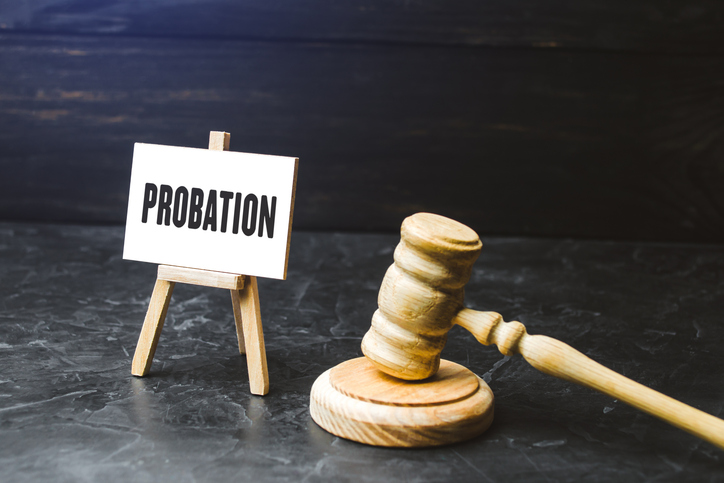Crimes That Are Eligible for Probation in CA
When one is convicted of a felony crime in California, they may face jail or prison time. However, in some cases, the judge may allow the defendant to be placed on probation instead of serving time in jail or prison. Probation is available for both misdemeanor and felony offenses.
While probation can be an attractive option for offenders who want to avoid the harsh reality of incarceration, not all crimes are eligible for probation. In this article, we will discuss crimes that are eligible for probation in California, the conditions for probation, and factors the court considers when deciding whether to grant probation.

What is Probation?
Probation is a form of supervision that allows the defendant to live in the community while following specific rules formally referred to as terms and conditions. The court imposes probation as an alternative to imprisonment.
When a defendant is placed on probation, they may be expected to follow specific rules such as attending counseling programs, performing community service, and regularly checking in with their probation officer.
Crimes Eligible for Probation in California
The eligibility for probation in California depends on the specific circumstances of the case and the defendant’s criminal history. Generally, non-violent crimes are more likely to be eligible for probation than violent crimes. Some examples of crimes that may be eligible for probation over jail time in California include:
-
Misdemeanors
Misdemeanors are less serious crimes than felonies and are typically punishable by fines, jail time, or community service. In many cases, individuals convicted of misdemeanors are eligible for probation.
-
Juvenile Offenses
Under Penal Code 1203.6 of California law, most crimes committed by minors are eligible for probation even when it involves repeat offenders.
-
Drug Offenses
Penal Code 1000 allows first-time drug crime offenders to participate in a drug supervision program, which can lead to a dismissal of charges upon successful completion. In addition, non-violent drug offenses may be eligible for Proposition 36, allowing the defendant to receive treatment instead of incarceration.
-
Property Crimes
Property crimes such as grand theft (Penal Code 487), forgery (Penal Code 470), and impersonation (Penal Code 532) may be eligible for probation if the defendant has no prior criminal record and the value of the property involved is relatively low.
-
White-Collar Crimes
Some white-collar crimes, such as insider trading and embezzlement, may be eligible for probation if the defendant has no prior criminal record and the offense did not involve violence.
-
Domestic Violence Offenses
Certain domestic violence offenses may be eligible for probation if the crime did not involve serious injury or a deadly weapon or if the defendant has no prior criminal record. In these cases, probation may include counseling, anger management classes, and restrictions on contact with the victim.
-
Driving Under the Influence (DUI)
DUI offenses may also be eligible for probation in California, depending on the specific circumstances of the case and the defendant’s criminal record. However, repeat offenders or those involved in accidents causing injury and death may be less likely to be granted probation.
It is important to note that the eligibility for probation may vary depending on the case’s specific circumstances and the judge’s discretion.
Common Rules of Probation in California
When a defendant is placed on probation, they must follow specific rules. Some of the most common conditions of probation include:
- Reporting to a probation officer
- Attending counseling or treatment programs
- Performing community service
- Paying restitution
- Allowing random searches on personal property
- Not leaving the state without permission
Factors Considered in Granting Probation
The California court considers several factors when deciding whether to grant probation. These include the following:
- The severity of the crime
- The victim’s vulnerability
- The defendant’s criminal history
- The safety of the community
- Whether the defendant shows remorse for their actions
- Whether the crime was committed due to an unusual circumstance, such as extreme provocation, which is not likely to happen again.
Contact Our Qualified Criminal Defense Attorney in California Today
If you or someone you know is facing criminal charges in California and are unsure about your options for probation, contact the qualified and experienced criminal defense lawyer at the Kosnett Law firm today. We can help you navigate the complex criminal justice system and work to secure the best possible outcome for your case. Call us at (310) 445-5900 to schedule a free consultation and learn how we can protect your legal rights and options.






